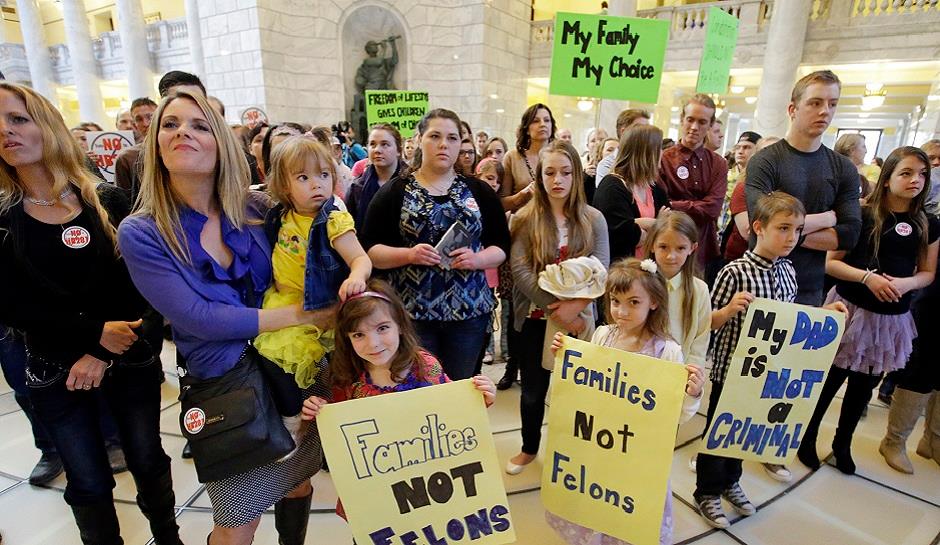By Frankee Wallace
You’re sitting cross-legged on a couch with all of your friends, deep in conversation, soaking up the stories of their unique, exciting, and (to you) daring love lives. Or, you’re in a coffee shop, earbuds in, watching an upbeat vlogger tell you about a lifestyle you didn’t know was possible. Young, hip magazines, blogs, social media, as well as progressive student groups, are how people learn about such things as polyamorous relationships. Though more mainstream or conservative news outlets never use the word, it’s a real type of relationship that today’s youth is becoming more acquainted with. If you aren’t sure you understand the concept, the hip and now website Urban Dictionary might be of some assistance. It’s really not surprising that millennials are becoming more open to poly relationships, and more accepting of them. Love is love, right?
It’s true that youth in polyamorous relationships do face discrimination, however their relationships are generally kept out of the hands of the law. Thus, they are protected from the criminalisation that practitioners of a very similar and very illegal form of relationship experience. That is, while polyamory is certainly not illegal, polygamy is.
Some non-monogamists are begging and fighting tooth and nail, for legal recognition. Their relationships are neither recognized as legal in the United States nor in Canada. In the U.S., non-monogamous marriages are illegal in all 50 states, and are contentiously illegal in Canada under Section 293 of the Criminal Code. Though polygamists mostly stay out of public view, we see them and condemn their communities due to allegations of child marriage and domestic abuse. Nonetheless, there are sects in both Canada and the United States trying to normalize polygamy; to change the public view from being cult-like and oppressive, to harmless and consensual; another way of life. These include many Mormon sects and Latter Day Saint sects who do not consider themselves to be fundamentalists. Polygamy is both illegal and deeply frowned upon in North American culture. However, polyamory is, at times, neither.
How, exactly then, are the two different? Polygamous sects, more popularly associated with Christian cults, are portrayed in a negative, almost perverted manner in the media, and not entirely without cause. Warren Jeffs, a previous leader of the Fundamentalist Latter Day Saints group in Utah; convicted of sexually assaulting his child brides, has become an infamous name in the polygamous community for giving reason to the label. Many plural-marriage families argue that it isn’t fair to look at them through one dark lens. They want change, and intend to demonstrate to others that their lives are not perverted or rattled with abuse. They don’t educate through calm and cute clips on social media, no, they lobby the government.
Continuing the trend exemplified by the stars of the popular TLC reality show Sister Wives, 150 polygamists protested the criminalisation of their lifestyle in Salt Lake City last March. Their goal was merely legal recognition, perhaps as a first step of many against the existing stigma and prejudice. Here, the line between polyamory and polygamy is clearly drawn; polyamorous people may face social discrimination, but they are far more protected from the persecution of the law and media than polygamous sects, who seek legal marital status. While it’s wonderful that North American youth are learning about, and accepting of, alternative lifestyles, they are withdrawn from the struggles of those who want similar things, just with legal status. In the future, millennial polyamorites may seek legal recognition in the form of marriage. Should this occur, the arguments against legalizing polygamy will cease to be legitimate in the eyes of society. What was previously seen as a taboo relationship, may soon come to be accepted.
What then, will polyamorous relationships turn into? Will people in these lifestyles want to be legally represented through contract? Will potentially dangerous polygamous sects use decriminalization of plural marriage to tempt new recruits? Perhaps it will be possible to legalize polygamy, if more people (not just Mormons) pursued it. This could be the case, so long as there are strict regulations to prevent abuse. On the other hand, polyamorous relationships may not be seen as a pressing enough concern for legislation, until it is brought under the mainstream definition of marriage.
Simply put, many polygamous communities, see it as their divine right to pursue plural marriage and are desperate to achieve that right. The struggle is real, as one child of a polygamous family details; Hannah Williams, like many others, wants to end the myth that all polygamous sects are abusive or associated with the Fundamentalist Latter Day Saints group (which Warren Jeffs lead). Williams was present at the protest of the Utah House Bill (which passed) to link polygamy to sentences like child and spousal abuse. Williams said the bill was bigoted, and that her family was one of love. Those leading polyamorous lifestyles have relationships equally filled with love, but their lives have a lot less lobbying for marital representation. Their struggles may one day, however, be one and the same.








